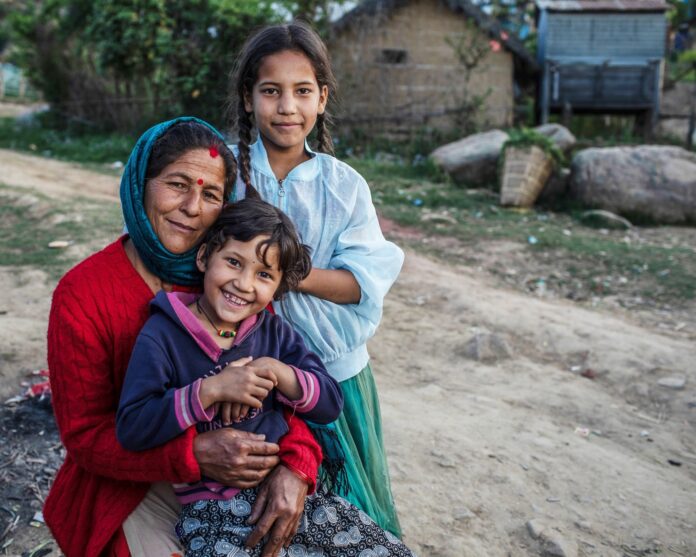(GNB Desk): USAID shares a story of Shova Khatri, a Nepali Women and how USAID’s holistic approach for sustainable progress has benefited the village as a whole on their development journey as below:
Every morning Shova Khatri takes the same journey, starting at the top of the hill and making her way to the markets where she sells her produce.
“Today, she is taking a detour as she shows us around the village, highlighting the progress the community has made, and how USAID’s holistic approach for sustainable progress has benefited the village as a whole on their development journey”, Sahar Kalifa, Senior Communications Advisor in USAID wrote in a blog.
Like many of the 80 percent of Nepalis who rely on agriculture, Shova grew just enough crops to feed her family for four months a year. For the remaining months, the family had to depend on wages from income from casual jobs and they struggled to survive.
Shova’s husband went overseas in search of work but had little success and eventually returned home.
She then moved to the Surkhet District of Nepal with the goal of providing her daughters with better opportunities and education, Khalifa wrote after she met Shova at her village.
In 2015, she received training and equipment from a project through Feed the Future, the U.S. Government’s global hunger and food security initiative led by USAID. After the training, she started to grow and sell more vegetables, tripling her income.
At first, she received a weighing scale and a bicycle.
“With a bicycle, I am quite confident to travel far to sell more vegetables,” Shova says. “I now sell 100 kilograms of vegetables per day reaching about 55 customers, whereas before getting a bicycle, I used to struggle to sell about 50 kilograms of vegetables per day.”
Demand for her vegetables — including carrots, cauliflower, and cabbage — increased. So Shova had to grow more. She then received training on improved techniques to boost her yields.
“I learned the skills of vegetable production and improved post-harvest practices to maintain the quality of my vegetables,” Shova says. “I also learned business skills to market and sell vegetables, bargain, and negotiate prices.”
With the additional income, Shova expanded into mushroom farming. She shared the farming and marketing techniques she learned with other women in the village, who now have also earned more money.
“I can now afford school fees for my daughter, fulfill all our basic household requirements, and save the rest in the bank for our future well-being,” Shova says.
USAID, through Feed the Future, has helped more than 245,000 Nepali households to increase their income and resilience — including Shova’s.
Shova received training from Feed the Future’s Knowledge-Based Integrated Sustainable Agriculture and Nutrition project. Funded by USAID, the project works with the Government of Nepal to reduce poverty and hunger by raising the income and resilience of smallholder farmers like Shova through integrated agriculture activities.
“It builds the capacity of private sector and community-based organizations to improve the availability of quality farm inputs, increase farmers’ access to credit, and improve the competitiveness and efficiency of producers, processors, and buyers”, according to USAID.
(This story is taken from USAID and Sahar Kalifa)
A global media for the latest news, entertainment, music fashion, and more.



